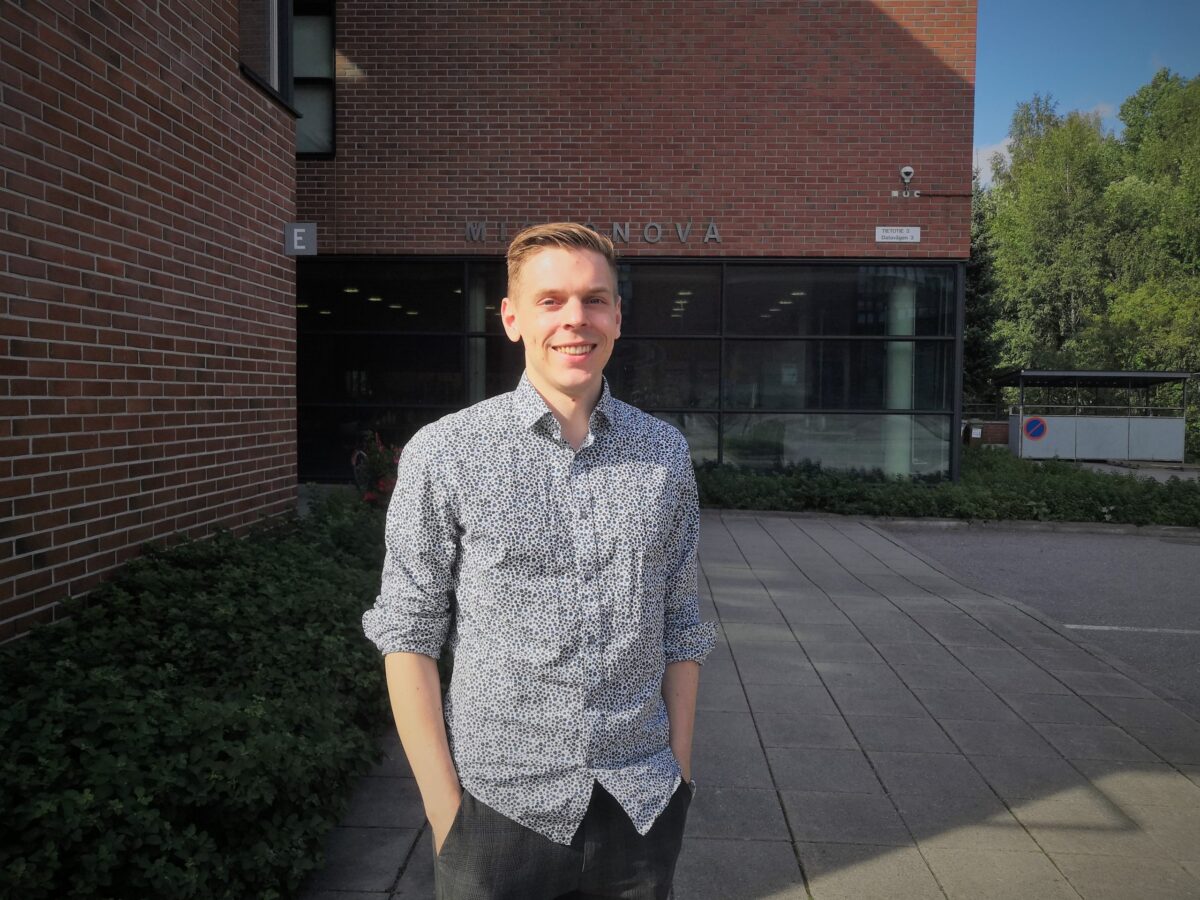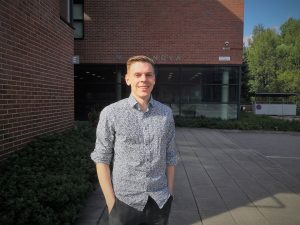News
Complex work can be a good thing – Process Engineer Olli Kanninen enjoys his diverse work in the product development of MEMS resonators
03.10.2020

A good team of researchers by nature combined with enthusiasm, outlining visions for the future in the world of MEMS resonators. They have put together a successful team. This is how Olli Kanninen, the Process Engineer of Kyocera Tikitin describes his international work community.
– I have an opportunity to learn a lot and fast in my work community. Everyone is easily approachable, and they have plenty of knowledge and skills. I look forward to going to the office every day.
Kyocera Tikitin is developing a new silicon-based MEMS resonator for the timing market. The resonator has a unique temperature coefficient of frequency and ESR features.
The different stages of the MEMS processing make the work interesting

Olli Kanninen started in the Kyocera Tikitin’s processing team at the beginning of 2020. Currently, his work includes more hands-on processing, but in future, Kanninen will concentrate more on quality control and documentation of the process. The processing team is growing rapidly.
– One of my areas of responsibility is compiling instructions for different stages of the process and maintaining quality documents, which will facilitate quality control.
Kanninen thinks it is especially rewarding that he has previously worked in a company where the processes had existed for decades. Now at Kyocera Tikitin, he has been able to influence on the implementation of the documentation and quality control and the arrangement of risk management from the very beginning. The manufacturing of silicon-based resonators includes a huge amount of different procedures.
– I like the diversity of my work created by the complexity of the process.
Kanninen is currently working on documenting the various stages for a monitoring system. The different processing stages of the MEMS fabrication, for example lithography, coating, sputtering, etching and their associated measurement systems and instruments are documented per every stage.
A clear target: first class resonators effectively
Kanninen’s target is to prevent quality issues and plan equipment acquisition from the viewpoint of the process: the requirements for the equipment and what is possible in the first place. The target is to manufacture resonators more effectively and in better quality.
Kyocera Tikitin operates in Finland’s heart of technology research and development, Otaniemi in Espoo. They are using Micronova’s premises and cleanroom owned by VTT and the Aalto University.
– The equipment specialists know their instruments throughout and provide plenty of training for their use.
Kanninen has studied materials science at Aalto University, specializing in thin film technologies and coatings.
– The greatest impulse for my career was my Master’s thesis on semiconductors.
See Kyocera Tikitin’s open positions or submit an open application!